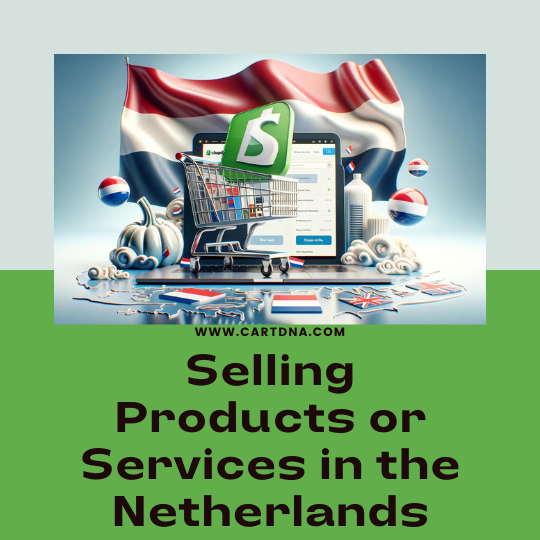Selling Products or Services in the Netherlands: Best Practices for Non-Residents
Expanding your business to the Netherlands, a vibrant and lucrative market, is an exciting venture. However, as a non-resident, it’s crucial to understand and adhere to specific best practices to ensure a smooth and successful entry. Here’s a guide to help you navigate the Dutch market effectively:
1. Understand the Local Market and Consumer Preferences
Conduct Market Research: Understand Dutch consumer behavior, preferences, and trends. The Netherlands has a unique market, and adapting your products or services to local tastes can significantly impact your success.
Cultural Sensitivity: Be aware of cultural nuances and local customs. This understanding can enhance your marketing strategies and customer interactions.
2. Legal and Regulatory Compliance
Business Registration and Taxation: Familiarize yourself with the legal requirements for selling in the Netherlands, including VAT registration and compliance.
Adhere to EU Regulations: As the Netherlands is part of the European Union, ensure your business complies with EU-wide regulations, particularly in areas like data protection (GDPR) and consumer rights.
3. Localize Your Offering
Website and Content Localization: Provide Dutch language options on your website. Offering content in the local language can significantly improve customer engagement and trust.
Adapt to Local Needs: Tailor your products or services to meet local needs and preferences. This might involve modifications in design, functionality, or service delivery.
4. Choose the Right Payment Methods
Offer Preferred Local Payment Options: iDEAL is the most widely used payment method in the Netherlands. Incorporating iDEAL alongside other popular payment methods can enhance customer convenience.
Consider Currency and Pricing: Display prices in Euros and factor in VAT and other taxes in your pricing strategy.
5. Establish a Robust Distribution Network
Efficient Logistics: Ensure a reliable and efficient logistics and distribution system. Consider partnering with local distributors or logistics companies for smoother operations.
Understand Import Regulations: If shipping from abroad, be well-versed with import regulations and duties.
6. Marketing and Customer Engagement
Effective Online Presence: Utilize digital marketing tailored to the Dutch audience. Consider local social media platforms, SEO, and email marketing strategies.
Customer Service Excellence: Offer excellent customer service, with options for Dutch-speaking support, to build trust and loyalty.
7. Networking and Partnerships
Build Local Networks: Establish relationships with local businesses, chambers of commerce, and trade associations. These networks can provide valuable insights and opportunities.
Collaborate with Local Influencers: Partner with Dutch influencers or industry experts to increase brand visibility and credibility.
8. Regular Market Review and Adaptation
Stay Informed: Continuously monitor market trends and consumer feedback. The Dutch market, like any other, evolves, and staying informed will help you adapt as needed.
Conclusion
Entering the Dutch market as a non-resident can be a rewarding endeavor, provided you navigate it with the right strategies and an understanding of local dynamics. By following these best practices, from legal compliance to cultural adaptation, you can establish a strong presence in the Netherlands, catering effectively to its diverse and dynamic market. Remember, success in the Netherlands hinges on your ability to adapt, engage, and resonate with the local audience.





